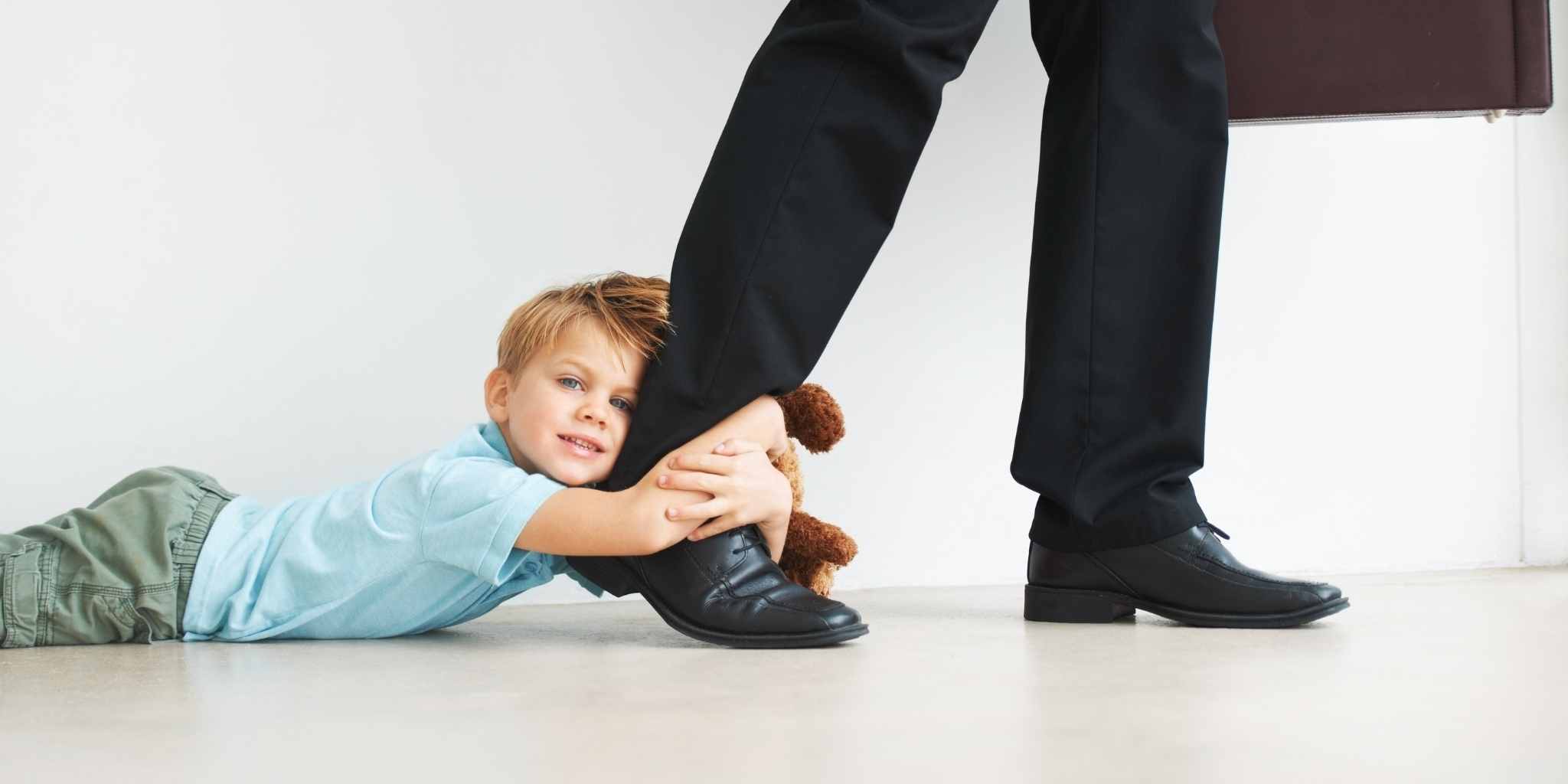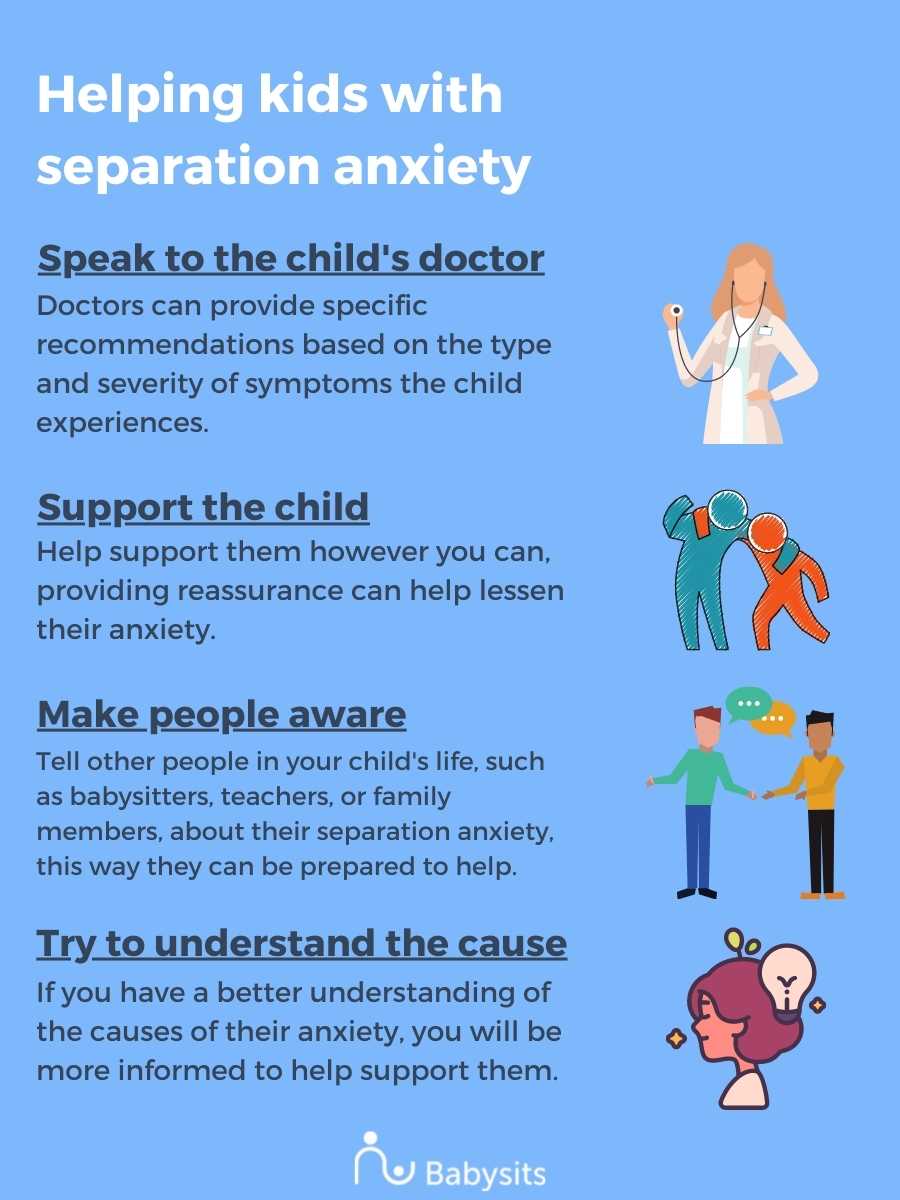
Separation anxiety in kids: Identification and Tips
Wondering if your child has separation anxiety, or how you can help ease their separation anxiety? Read our top tips on identifying and dealing with separation anxiety in kids below!
What is separation anxiety in children?
Separation anxiety in children refers to when a child worries or suffers fear or anxiety when being away (or separated) from family members or other individuals with whom they have a close relationship.
This anxiety can surface for several reasons, the child for example fearing that:
- Something bad will happen to their family member or close relation
- They will be lost and not be able to find their family
- They will be abandoned
- And more
Anxiety of different forms is not uncommon in children, although the types and severity can vary vastly.
With regards to separation anxiety specifically, according to Cedars Sinai, nearly all children between the ages of 18 months and 3 years old have separation anxiety and are clingy to some degree.
Severe separation anxiety, separation anxiety as a disorder, however can be serious and debilitating. Signs of separation anxiety as a disorder in children most commonly start occuring when the child is between 7-11 years old.
How to identify separation anxiety in children?
Separation anxiety can show itself in many ways. Here are some common signs of separation anxiety.
- Being extremely clingy, even when at home
- Having trouble or refusing to sleep alone
- Having nightmares about being separated in some way
- Being overly worried about the safety of a close relation
- Being overly worried about potentially getting lost or abandoned
- Being overly worried when separated from home or family
- Refusing to go to school or be separated from family
- Fear or reluctance to being alone in general
- Panic or tantrums when being separated from family or close relations
Separation anxiety can also appear in physical signs or symptoms, such as:
- Achy or tense muscles
- Frequent stomach pain or headaches, or other physical ailments
Dealing with or taking care of a child with separation anxiety
Depending on the severity of the anxiety and symptoms, there are different things you can do to help children with separation anxiety.

- Discuss with your child’s doctor
The doctor should be able to provide specific recommendations depending on the severity and types of symptoms that your child is experiencing. They may also be able to help in identifying whether or not a child’s anxiety is severe and a sign of separation anxiety disorder. In this case, they can help recommend other therapies or treatments, or medication.
- Support your child and help reassure them
Help support them in the ways you can and reassuring them can help lessen their separation anxiety. Therapists may have more personalized tips on what for support and reassurance you can give them, but think of doing things that help make them more comfortable or ease the worries that they have when separated.
- Try to understand the cause of their anxiety or situations when they feel anxious
Part of helping to support and reassure the child is to understand why they are feeling separation anxiety. If you have a better understanding of the cause of their anxiety, you will be more informed to help support them. Similarly, if you recognize the situations when they feel more anxious, you can help them prepare for these situations and prepare for them yourself.
- Make sure the people in the child’s life are aware of their separation anxiety
If your child is experiencing some signs of separation anxiety, it is important that other important people in the child’s life know this. For example, babysitters, teachers, or other family members, that may interact with the child more often, can get a better understanding of why a child is reacting the way they are and potentially how they can help ease their anxiety.
All in all, helping children through separation anxiety is a process and will be different in each individual case.
We hope this article helps give you the basis on how you can help your child with separation anxiety! Looking for more parenting tips? Check out our tips for parents!
If you’re searching for childcare, make sure to check out our babysitters.
You can even find babysitters and nannies with specific experience dealing with children’s extra needs, such as anxiety disorders.



